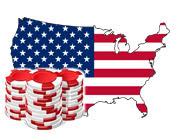 Ever since Black Friday, American poker players have been at a loss, and the poker community around the world has felt the loss of American players at online poker sites. Americans, who make up the largest number of online poker players (or used to, at any rate), and who often possess a fair amount of skill in the game, have been banned from the major sites for almost a full year now. While plenty of loopholes existed before that would let US players get around the Unlawful Internet Gambling Enforcement Act (UIGEA), which largely bans US banks from making deposits into and taking funds out of online internet sites, Black Friday saw a crackdown from the US government that prevented some banks and sites from exploiting these loopholes and scared others out of even trying. While some poker players in the US have switched to either live games or other pursuits altogether, the majority remain optimistic that their country and/or state will soon pass legislation that will bring back the access to online poker.
Ever since Black Friday, American poker players have been at a loss, and the poker community around the world has felt the loss of American players at online poker sites. Americans, who make up the largest number of online poker players (or used to, at any rate), and who often possess a fair amount of skill in the game, have been banned from the major sites for almost a full year now. While plenty of loopholes existed before that would let US players get around the Unlawful Internet Gambling Enforcement Act (UIGEA), which largely bans US banks from making deposits into and taking funds out of online internet sites, Black Friday saw a crackdown from the US government that prevented some banks and sites from exploiting these loopholes and scared others out of even trying. While some poker players in the US have switched to either live games or other pursuits altogether, the majority remain optimistic that their country and/or state will soon pass legislation that will bring back the access to online poker.
Legislature has been introduced in a good number of states. Here’s what’s been happening lately with poker legislation in the US:
Hawaiian Poker Bill 86’ed
Hawaii, which is one of only two US states that doesn’t have any form of legalized gambling (the other being Utah), has nixed another online poker bill. The state legislature has turned down roughly 150 gambling-related bills in the last 30 years, a surprising feat given Hawaii’s left-leaning political climate. Despite the rejection of the most recent bill, which pushed for the legalization of not only online poker but also state lotteries and land-based casinos, research is currently underway to examine the economic and regional impact of opening a land-based casino in Waikiki. While it’s a far cry from being able to play poker online from the Aloha State, it’s at least one indication that local politicians are interested in making strides in that direction… eventually.
Utah Actively Chases Poker Out of the State
Anyone familiar with Utah’s political history won’t be surprised to know that this ultra-conservative state is opposed to online gambling. Since around 60.4% of the state is made up of Mormons, followers of the Church of Jesus Christ of Latter-Day Saints, a religion that openly forbids, among other things, gambling, it doesn’t come as a shock that the politicians are not only blocking internet gambling laws, but are actively campaigning to ban it from the state entirely. Stephen Sandstrom, a Republican Congressman from Orem, stated on his website: “We want to keep Utah free from the negative impacts of legalized gambling… the gambling industry profits from the vulnerabilities of its customers and opens the way for states to become further dependent upon tax revenues gained from a form of recreation that hits hardest those who can least afford it.”
Nevada Moves Forward on Online Poker Legalization
Unlike its neighbor, Nevada residents and their representatives aren’t squeamish about getting involved with gambling of any kind, least of all online poker. The state has been campaigning hard to legalize online poker ever since the DOJ announced that the decision would be left up to the individual states (albeit not without federal loopholes to jump through), and it seems that their efforts will bear fruit soon– online poker is likely to be completely legal in Nevada in late Autumn, making the state even more of a gambler’s paradise.
New Jersey Takes One Step Forward, One Step Back

Poker fans abound in New Jersey, whose Atlantic City is the number two spot for gambling in the US, and an online gambling bill has made some headway in the Garden State, pushing through the Senate committee. Currently, the bill is facing some challenges from the horse racing legion, which considers online poker a threat to their well-being as a gambling institution. Only time will tell where this leads, but parties on both sides of the issue are getting pretty annoyed.
Iowa Online Poker Bill on the Fast Track
Like New Jersey, Iowa has also passed an online poker bill through their senate subcommittee, and the bill is ramped up for the next committee hearing. Iowans on the pro- side argue that the bill will bring in millions in added revenue, while the anti- side is convinced that the bill will corrupt family values by encouraging underaged players to gamble online. Given the political climate in Iowa, which obsesses over “family values” but has lately been seen as surprisingly progressive, there’s no telling which way this bill will ultimately go.
California Makes Progress
A bill in California proposes that online poker (and only poker) be allowed for a two-year trial period, after which time either the whole thing will be abandoned or other casino games will be phased in. This bill has more potential than the two bills struck down in 2011, and with 60% of America’s online poker players residing in California, residents are hoping that it goes through.
Mississippi Kills Poker Bill
The state of Mississippi killed a proposed online poker bill last week, one that proposed that casinos currently existing in the state could open online casinos and offer internet gambling and poker to their players. Given Mississippi’s position firm in the middle of the Bible Belt, it’s not particularly surprising that the bill was quashed, but plans exist to reintroduce the bill in the future (perhaps when the next elections trade out some of the current representatives for those of a different political persuasion).
 Online poker is a big, big thing. Players can win big money and even when they aren’t winning, the rewards and bonuses at many online poker rooms can make killing time more rewarding than ever before. That’s why so many people have started playing online poker to start with.
Online poker is a big, big thing. Players can win big money and even when they aren’t winning, the rewards and bonuses at many online poker rooms can make killing time more rewarding than ever before. That’s why so many people have started playing online poker to start with.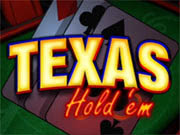 Plus, you’ll likely love the way that you can check out other educational tools, like the poker strategy section. This is where you can learn how to win more online poker games by learning the strategies that will help you no matter what game you’re playing. When it comes to Texas Hold’em, you’re going to find that this is a great place to learn all of the basics, and gain some additional skills as well.
Plus, you’ll likely love the way that you can check out other educational tools, like the poker strategy section. This is where you can learn how to win more online poker games by learning the strategies that will help you no matter what game you’re playing. When it comes to Texas Hold’em, you’re going to find that this is a great place to learn all of the basics, and gain some additional skills as well. Ever since Black Friday, American poker players have been at a loss, and the poker community around the world has felt the loss of American players at
Ever since Black Friday, American poker players have been at a loss, and the poker community around the world has felt the loss of American players at 
 The US Department of Homeland Security has gone after another site and its founder– this time Bodog.com and Calvin Ayre, a former Forbes billionaire and contender for most eligible bachelor throughout US media. The curious thing about this particular seizure, however, is that the site hasn’t been operational for nine months, so the US government isn’t shutting down a site so much as they are flaunting their power and taking it because they can. A federal grand jury in Maryland indicted Ayre along with James Philip, Derrick Maloney, and David Ferguson on February 22nd.
The US Department of Homeland Security has gone after another site and its founder– this time Bodog.com and Calvin Ayre, a former Forbes billionaire and contender for most eligible bachelor throughout US media. The curious thing about this particular seizure, however, is that the site hasn’t been operational for nine months, so the US government isn’t shutting down a site so much as they are flaunting their power and taking it because they can. A federal grand jury in Maryland indicted Ayre along with James Philip, Derrick Maloney, and David Ferguson on February 22nd. According to the paperwork in the case, investigators posed as players, using Maryland addresses, to see if they could get checks via mail (they did), and conducted interviews with Bodog employees and former employees to get a better understanding of the company’s operations. The affidavit filed with the warrant includes information from a former employee that the company has hundreds of employees in Costa Rica and Canada who are working specifically to launder money into the US. The heart of this matter can probably best be summed up by ‘s official statement: “Sports betting is illegal in Maryland, and federal law prohibits bookmakers from flouting that law simply because they are located outside the country.”
According to the paperwork in the case, investigators posed as players, using Maryland addresses, to see if they could get checks via mail (they did), and conducted interviews with Bodog employees and former employees to get a better understanding of the company’s operations. The affidavit filed with the warrant includes information from a former employee that the company has hundreds of employees in Costa Rica and Canada who are working specifically to launder money into the US. The heart of this matter can probably best be summed up by ‘s official statement: “Sports betting is illegal in Maryland, and federal law prohibits bookmakers from flouting that law simply because they are located outside the country.” The defense wasn’t shy about bringing people forward to state their case. During the hearing, the judge heard from a professional poker player, a mathematician who plays poker recreationally, and chess and bridge champions, all of whom said one thing: poker is clearly a game of skill. There is a precedent for this kind of argument, as backgammon was considered a game of chance in the US until 1981, when tournament director Ted Barr was arrested for promoting gambling and took the court to task over their definition of backgammon as a game of chance. While some people consider poker a game of chance, due to the fact that cards are dealt randomly, pros like Annette Obrestad have demonstrated that one doesn’t even need to look at the cards in one’s hand to win a tournament! In 1981, the argument was much the same– because backgammon involved dice, legislators believed that it had to be a game of chance, although the witnesses called to the stand demonstrated that there is no randomness to winning– experienced players consistently beat new players– and there were countless options available to the player after the dice had landed.
The defense wasn’t shy about bringing people forward to state their case. During the hearing, the judge heard from a professional poker player, a mathematician who plays poker recreationally, and chess and bridge champions, all of whom said one thing: poker is clearly a game of skill. There is a precedent for this kind of argument, as backgammon was considered a game of chance in the US until 1981, when tournament director Ted Barr was arrested for promoting gambling and took the court to task over their definition of backgammon as a game of chance. While some people consider poker a game of chance, due to the fact that cards are dealt randomly, pros like Annette Obrestad have demonstrated that one doesn’t even need to look at the cards in one’s hand to win a tournament! In 1981, the argument was much the same– because backgammon involved dice, legislators believed that it had to be a game of chance, although the witnesses called to the stand demonstrated that there is no randomness to winning– experienced players consistently beat new players– and there were countless options available to the player after the dice had landed. America and Canada have always had an amicable relationship based on Canada’s perception that Americans are too intense and America’s firm belief that Canada’s chief function is as America’s hat. Travel between the two has always been easy, and citizens generally regard one another as long-lost friends, albeit friends who talk a little funny. With the chaos in the poker world in the US, however, more and more American poker players are heading to the Great White North in an attempt to reactivate their online poker accounts and get back into the game.
America and Canada have always had an amicable relationship based on Canada’s perception that Americans are too intense and America’s firm belief that Canada’s chief function is as America’s hat. Travel between the two has always been easy, and citizens generally regard one another as long-lost friends, albeit friends who talk a little funny. With the chaos in the poker world in the US, however, more and more American poker players are heading to the Great White North in an attempt to reactivate their online poker accounts and get back into the game.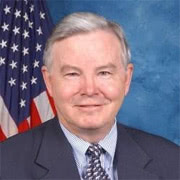 The Barton bill has gotten a great deal of attention since it was first introduced before the House of Representatives by Texas Republican (let’s be honest– he’s a Tea Partier) Joe Barton in late June. The bill has been lauded as the great salvation of online poker by Americans desperate to play and online poker sites desperate for the customers in the United States, but some people are taking a second look and realizing that there’s something a little bit off about the bill (and not just that it was introduced by Joe Barton, which is enough to make most sensible people wary).
The Barton bill has gotten a great deal of attention since it was first introduced before the House of Representatives by Texas Republican (let’s be honest– he’s a Tea Partier) Joe Barton in late June. The bill has been lauded as the great salvation of online poker by Americans desperate to play and online poker sites desperate for the customers in the United States, but some people are taking a second look and realizing that there’s something a little bit off about the bill (and not just that it was introduced by Joe Barton, which is enough to make most sensible people wary). 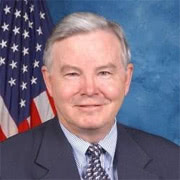 Joe Barton is best known for his frequent political blunders, such as apologizing to British Petroleum about the “witch hunt” that was taking place in the US as the government attempted to hold the industrial giant accountable for the unparalleled environmental disaster they created. Despite his placement as chair of the Energy and Commerce committee, Barton has frequently made statements denying the existence of global warming and criticizing the utilization of wind power, as “Wind is God’s way of balancing heat. Wind is the way you shift heat from areas where it’s hotter to areas where it’s cooler. That’s what wind is. Wouldn’t it be ironic if in the interest of global warming we mandated massive switches to energy, which is a finite resource, which slows the winds down, which causes the temperature to go up? Now, I’m not saying that’s going to happen, Mr. Chairman, but that is definitely something on the massive scale. I mean, it does make some sense. You stop something, you can’t transfer that heat, and the heat goes up. It’s just something to think about.” While it’s certainly possible for good legislature to come from lousy politicians (especially when the bill is co-sponsored by 11 others), it’s often wise to consider the the source of a bill before assuming that it will be an automatic success.
Joe Barton is best known for his frequent political blunders, such as apologizing to British Petroleum about the “witch hunt” that was taking place in the US as the government attempted to hold the industrial giant accountable for the unparalleled environmental disaster they created. Despite his placement as chair of the Energy and Commerce committee, Barton has frequently made statements denying the existence of global warming and criticizing the utilization of wind power, as “Wind is God’s way of balancing heat. Wind is the way you shift heat from areas where it’s hotter to areas where it’s cooler. That’s what wind is. Wouldn’t it be ironic if in the interest of global warming we mandated massive switches to energy, which is a finite resource, which slows the winds down, which causes the temperature to go up? Now, I’m not saying that’s going to happen, Mr. Chairman, but that is definitely something on the massive scale. I mean, it does make some sense. You stop something, you can’t transfer that heat, and the heat goes up. It’s just something to think about.” While it’s certainly possible for good legislature to come from lousy politicians (especially when the bill is co-sponsored by 11 others), it’s often wise to consider the the source of a bill before assuming that it will be an automatic success.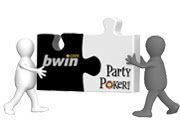 For those of you who have been following the story since early in the year, it may not come as much of a surprise, but to the rest of us, this could be news that shakes up the whole online poker balance of power, as two of the world’s leading poker sites,
For those of you who have been following the story since early in the year, it may not come as much of a surprise, but to the rest of us, this could be news that shakes up the whole online poker balance of power, as two of the world’s leading poker sites,  And once again it’s that time of the year where we gather around a tree and celebrate together with our loved ones. While the many special Christmas offers of our featured
And once again it’s that time of the year where we gather around a tree and celebrate together with our loved ones. While the many special Christmas offers of our featured